
Cape Coast: The Jewel of Ghana's Coastline
Cape Coast, nestled along the stunning coast of Ghana, is a city rich in history and natural beauty. Known for its significant role in the trans-Atlantic slave trade, Cape Coast offers a deep and moving historical experience. The Cape Coast Castle, a UNESCO World Heritage site, stands as a stark reminder of this dark period. Visitors can explore the dungeons and learn about the lives of those who passed through its gates. Beyond its historical significance, Cape Coast is also a haven for nature lovers. The Kakum National Park, just a short drive away, features a breathtaking canopy walkway suspended high above the forest floor. This is a must-visit for those who want to experience the lush, tropical rainforest from a unique vantage point. The city itself is vibrant and welcoming, with bustling markets and friendly locals. Don't miss out on the local cuisine, especially the fresh seafood dishes that reflect the city's coastal heritage. Whether you're wandering through the historical sites, exploring the natural wonders, or simply relaxing on the beach, Cape Coast promises an unforgettable journey.
Local tips in Cape Coast
- Visit Cape Coast Castle early in the morning to avoid crowds and have a more personal experience.
- Bring insect repellent for your visit to Kakum National Park, especially if you plan to do the canopy walk.
- Try the local dish 'Fante kenkey' with fresh fish for an authentic culinary experience.
- Hire a local guide for a more insightful tour of the historical sites; they offer valuable perspectives.
- Wear comfortable shoes for exploring the city's markets and historical sites, as you'll be doing a lot of walking.
Cape Coast: The Jewel of Ghana's Coastline
Cape Coast, nestled along the stunning coast of Ghana, is a city rich in history and natural beauty. Known for its significant role in the trans-Atlantic slave trade, Cape Coast offers a deep and moving historical experience. The Cape Coast Castle, a UNESCO World Heritage site, stands as a stark reminder of this dark period. Visitors can explore the dungeons and learn about the lives of those who passed through its gates. Beyond its historical significance, Cape Coast is also a haven for nature lovers. The Kakum National Park, just a short drive away, features a breathtaking canopy walkway suspended high above the forest floor. This is a must-visit for those who want to experience the lush, tropical rainforest from a unique vantage point. The city itself is vibrant and welcoming, with bustling markets and friendly locals. Don't miss out on the local cuisine, especially the fresh seafood dishes that reflect the city's coastal heritage. Whether you're wandering through the historical sites, exploring the natural wonders, or simply relaxing on the beach, Cape Coast promises an unforgettable journey.
When is the best time to go to Cape Coast?
Iconic landmarks you can’t miss
Cape Coast Castle
Explore the poignant history of Cape Coast Castle, a UNESCO World Heritage Site in Ghana, where the past meets stunning coastal beauty.
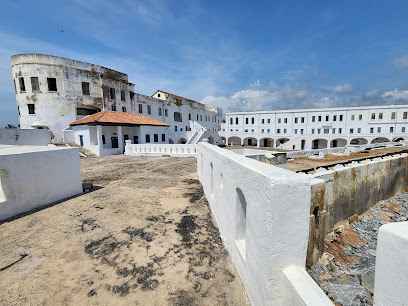
Elmina Castle
Explore Elmina Castle, a UNESCO World Heritage Site that offers a deep dive into Ghana's poignant history and breathtaking coastal views.
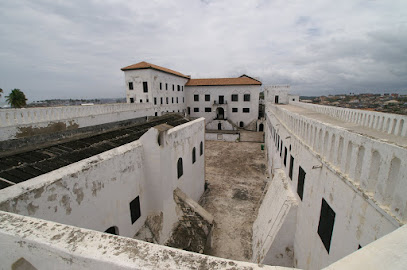
University Of Cape Coast
Explore the University of Cape Coast, Ghana's coastal academic gem, where beauty meets knowledge in a vibrant educational hub.
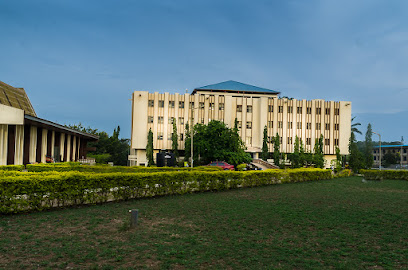
Da Breeze Bar & Restaurant
Experience the vibrant flavors of Ghana at Da Breeze Bar & Restaurant, where delicious cuisine meets stunning ocean views in Cape Coast.
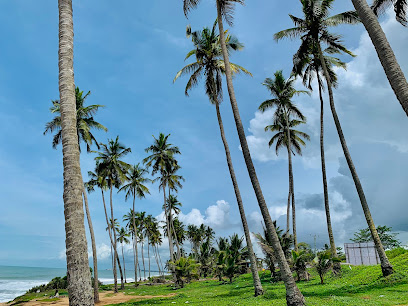
Samrit Hotel
Discover the charm of Cape Coast at Samrit Hotel, your perfect base for exploring Ghana's rich history and stunning coastal landscapes.

Sahara Spring Restaurant & Pub
Discover the essence of Cape Coast dining at Sahara Spring Restaurant & Pub, where local flavors meet international cuisine in a vibrant atmosphere.
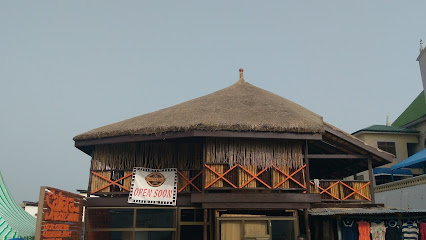
Sasakawa Chalets
Experience tranquility and culture at Sasakawa Chalets, a serene guest house in the heart of Cape Coast, Ghana, perfect for a relaxing getaway.

Emma Locals
Discover authentic Ghanaian cuisine in Cape Coast at Emma Locals, where every meal is a celebration of local flavor and culture.
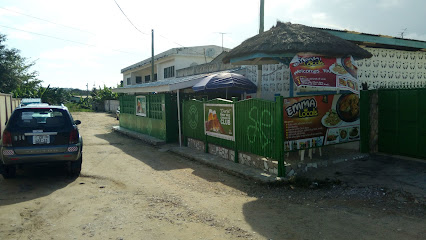
Hutchland beach
Discover the vibrant atmosphere and stunning scenery at Hutchland Beach, a coastal paradise in Cape Coast, Ghana, perfect for relaxation and local culture.
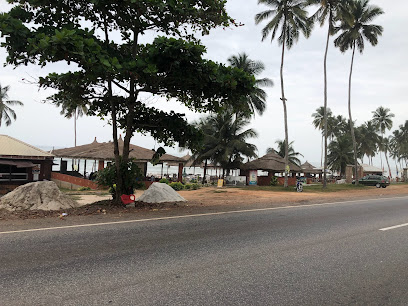
Kokodo Guest House
Discover the cultural heart of Cape Coast while enjoying the comfort of Kokodo Guest House, a perfect retreat for every traveler.

Orange Beach Resort
Discover the charm of Orange Beach Resort in Cape Coast, where comfort meets adventure in a stunning coastal setting.
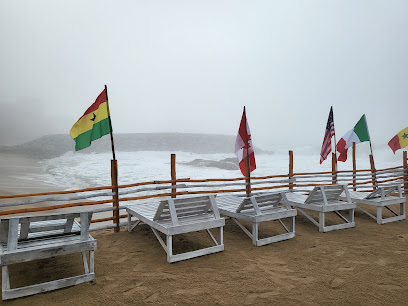
Fort William | TortoisePath.com
Discover the rich history of Fort William, a coastal fortress in Cape Coast, Ghana, where stunning views meet a compelling colonial past.
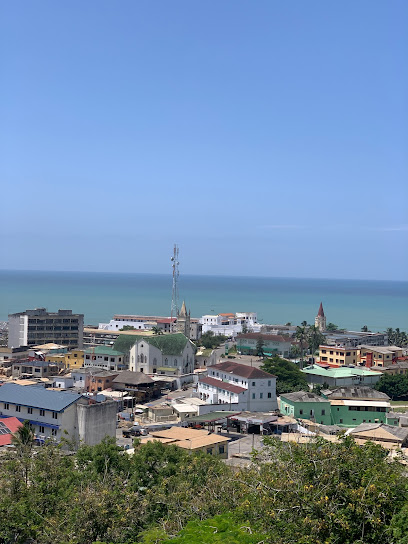
One Africa Health Resort
Experience the perfect blend of healthy cuisine and serene ambiance at One Africa Health Resort in Elmina, a culinary oasis for every traveler.
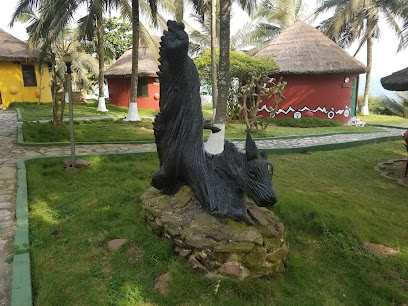
Baobab House
Experience the heartwarming mission of Baobab House in Cape Coast, where compassion meets community and every visit makes a difference.
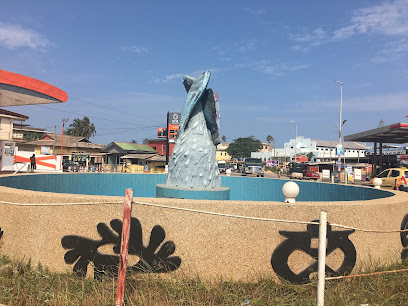
London Bridge
Experience the historical allure of London Bridge in Cape Coast, where the past meets the present in a picturesque setting.
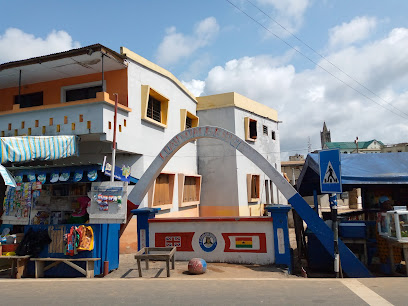
Unmissable attractions to see
Cape Coast Castle
Explore Cape Coast Castle, a UNESCO World Heritage Site, where history and beauty converge along Ghana's stunning coastline.

Elmina Castle
Explore the historical significance of Elmina Castle, a UNESCO World Heritage Site reflecting Ghana's rich heritage and the impact of the transatlantic slave trade.
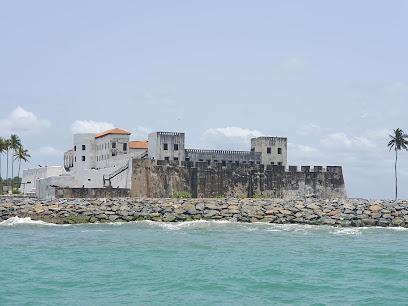
Kakum National Park
Explore the lush biodiversity of Kakum National Park, where adventure meets tranquility in Ghana's natural paradise.
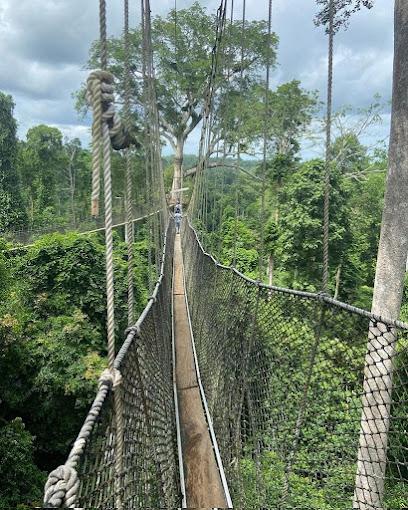
Coconut Grove Beach Resort
Discover tranquility at Coconut Grove Beach Resort in Elmina, where stunning ocean views meet Ghanaian hospitality for an unforgettable getaway.

Kakum National Park Entrance Gate Ghana
Explore the breathtaking Kakum National Park, where adventure meets nature in the heart of Ghana's lush rainforest.
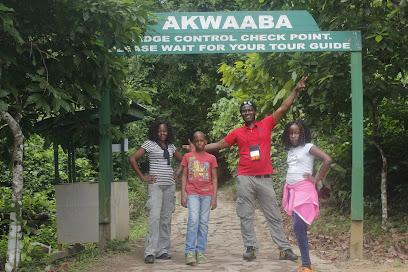
Fort Amsterdam
Experience the rich colonial history at Fort Amsterdam in Abandze, a beautifully preserved fortress with stunning ocean views and cultural insights.
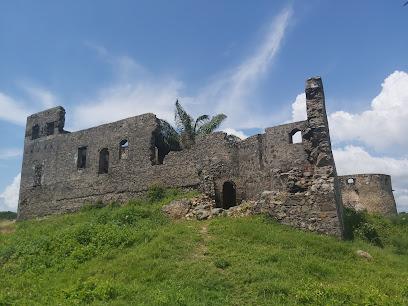
Kwame Nkrumah Hall Park
Experience the natural beauty and rich history of Kwame Nkrumah Hall Park in Cape Coast, Ghana; a serene escape for every traveler.
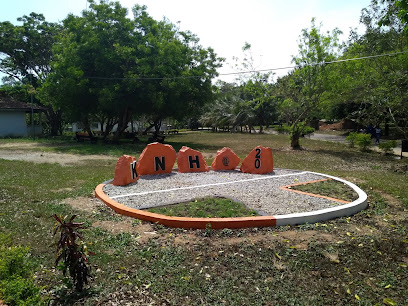
Fort William | TortoisePath.com
Discover the historical significance and breathtaking views at Fort William, a must-visit fortress in Cape Coast, Ghana.
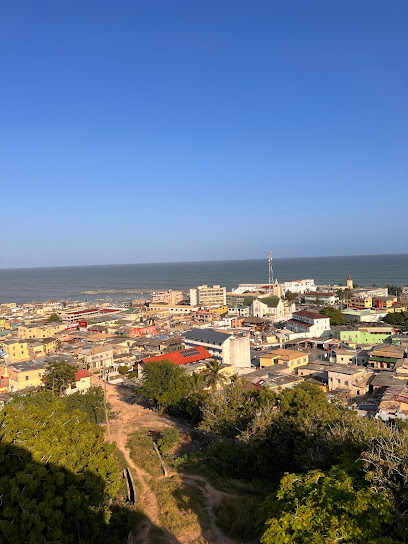
Kakumdo
Discover the breathtaking trails of Kakumdo in Cape Coast, a perfect hiking destination for nature lovers and adventurers seeking scenic beauty in Ghana.
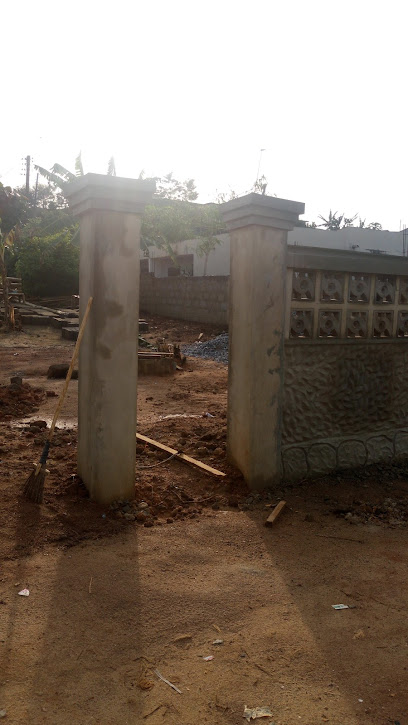
Fort William, Ghana
Explore Fort William in Anomabo, Ghana – a historical gem offering breathtaking ocean views and a glimpse into the country's rich colonial past.
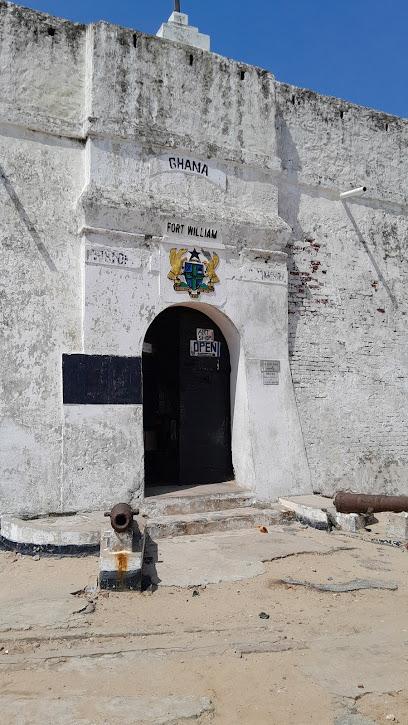
International Stingless Bee Centre
Explore the fascinating world of stingless bees at the International Stingless Bee Centre, an ecological park in Odumase Abrafo, Ghana, perfect for nature lovers.
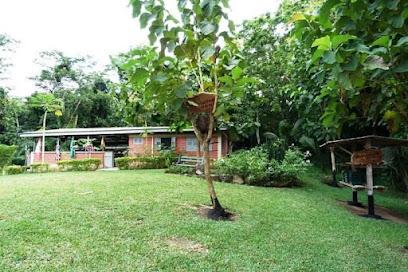
UCC Botanical Garden
Discover the breathtaking beauty of UCC Botanical Garden in Cape Coast, a serene retreat filled with diverse flora and peaceful pathways.
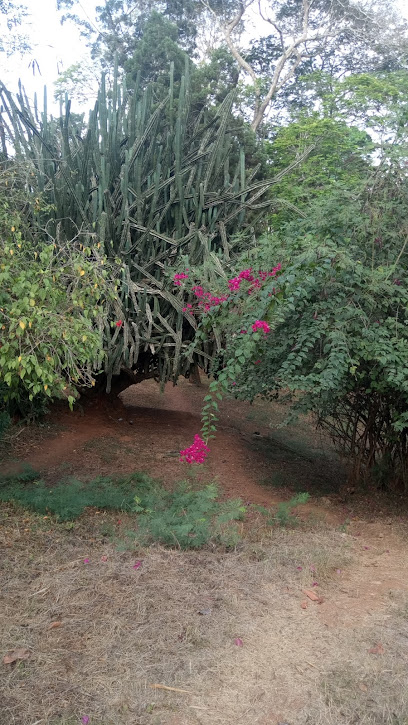
Antonio Garden
Experience the tranquility and beauty of Antonio Garden, a serene botanical garden in Cape Coast, Ghana, perfect for nature lovers and peaceful retreats.
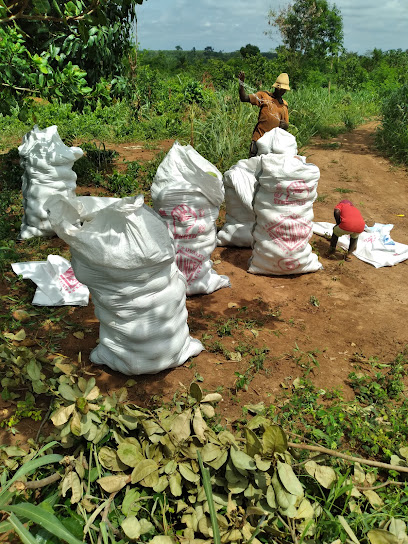
Fort Nassau
Explore Fort Nassau, a historic gem in Cape Coast, Ghana, offering a deep dive into colonial history and stunning coastal views.
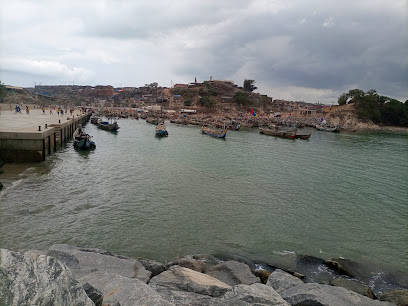
Bonkus Park
Experience tranquility at Bonkus Park, a lush green oasis in Cape Coast ideal for relaxation, picnics, and enjoying nature's beauty.

Essential places to dine
Becky Kay Restaurant and Bar
Experience authentic Ghanaian cuisine at Becky Kay Restaurant and Bar in Cape Coast - where local flavors meet vibrant ambiance.
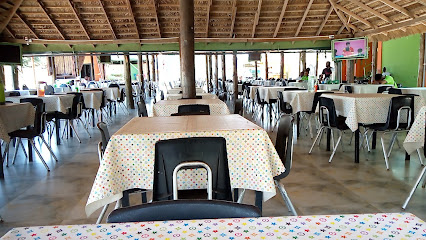
Da Breeze Bar & Restaurant
Experience coastal dining at its finest at Da Breeze Bar & Restaurant in Cape Coast, where exquisite flavors meet stunning ocean views.
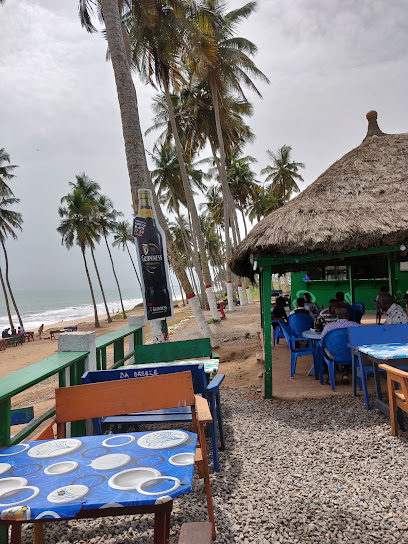
Solace Bar & Restaurant
Experience delightful local flavors and international dishes at Solace Bar & Restaurant in Cape Coast - your perfect dining retreat by the coast.
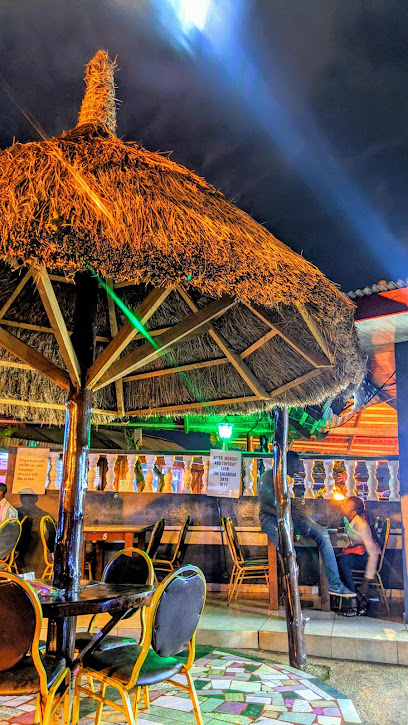
Sahara Spring Restaurant & Pub
Experience authentic Ghanaian cuisine and vibrant entertainment at Sahara Spring Restaurant & Pub in Cape Coast.
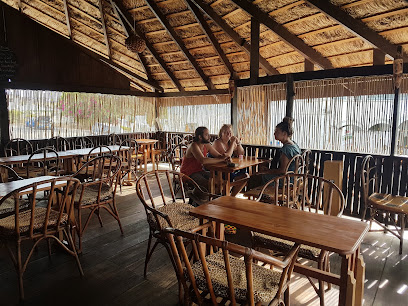
Emma Locals
Experience authentic Ghanaian flavors at Emma Locals in Cape Coast - where every dish tells a story.
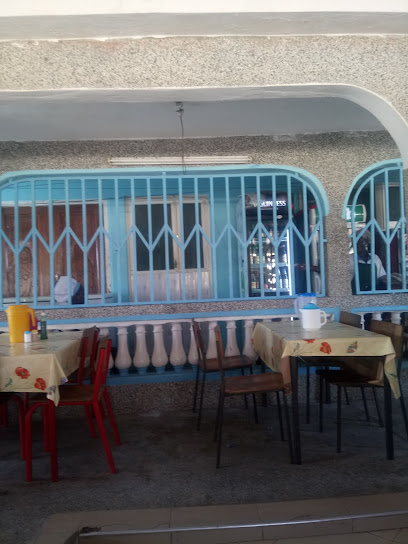
Orange Beach Resort
Experience coastal bliss at Orange Beach Resort in Cape Coast - your gateway to Ghana's stunning beaches and rich cultural heritage.
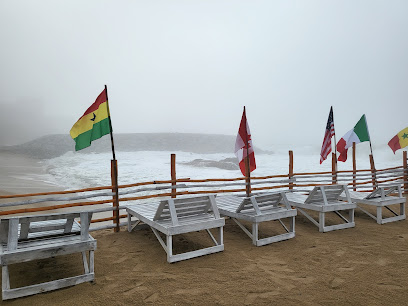
Tasty Chef
Discover flavorful Ghanaian cuisine and international delights at Tasty Chef in Cape Coast – where every meal is a celebration of taste.
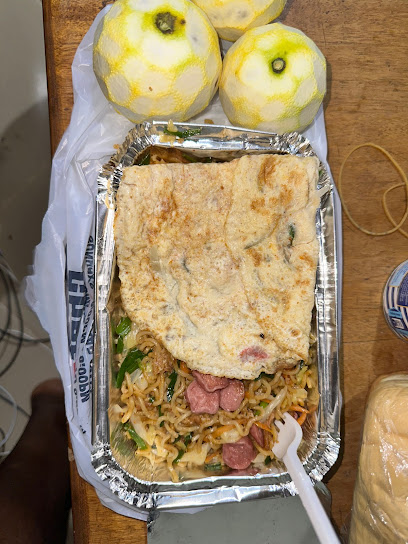
Heritage beach resort
Experience serene coastal living at Heritage Beach Resort in Cape Coast – where local flavors meet breathtaking ocean views.
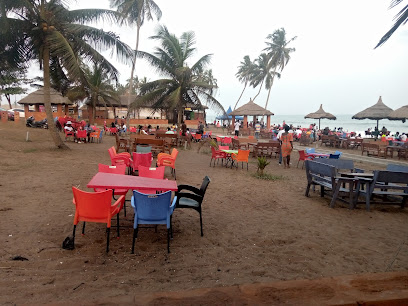
Sasakawa Restaurant
Experience the culinary delights of Cape Coast at Sasakawa Restaurant - where local flavors meet international cuisine.
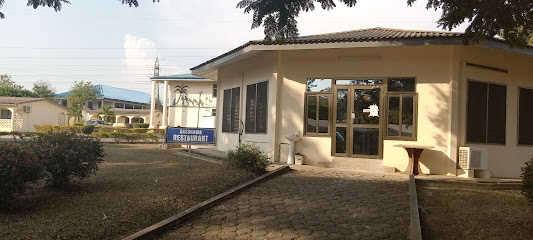
TEL AVIV Bar & Restaurant
Experience authentic Ghanaian flavors at TEL AVIV Bar & Restaurant in Cape Coast, where culture meets culinary delight.
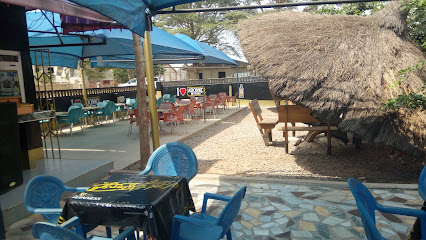
Tina Tavern
Discover authentic flavors at Tina Tavern in Cape Coast, where local cuisine meets warm hospitality amidst vibrant surroundings.
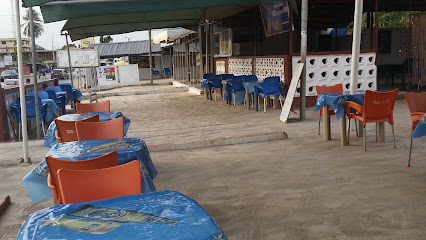
Emperor Ital Joint
Experience vibrant vegan cuisine at Emperor Ital Joint in Cape Coast, where local flavors meet sustainable dining practices.
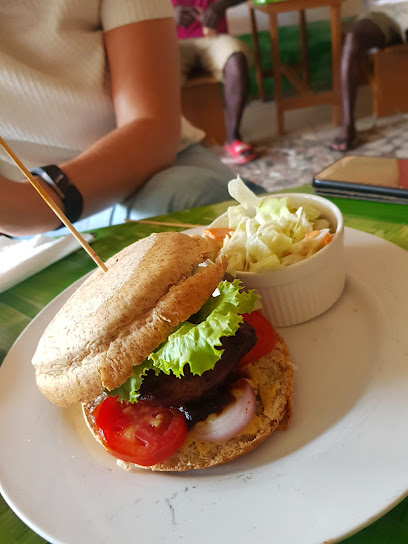
Castle Beach Resturant
Experience authentic Ghanaian cuisine with stunning ocean views at Castle Beach Restaurant in Cape Coast.
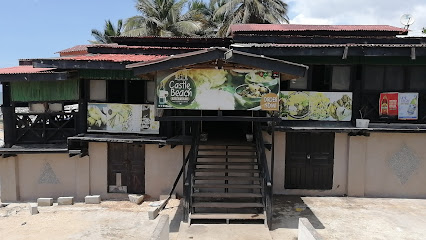
Kofan Spot
Experience authentic African cuisine at Kofan Spot in Cape Coast, where every dish tells a story of tradition and flavor.
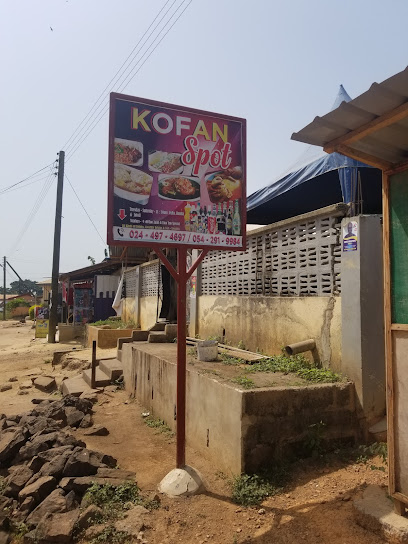
Fema Resto Cafe
Experience culinary delight at Fema Resto Cafe in Cape Coast, where local flavors meet international cuisine in a welcoming atmosphere.

Markets, malls and hidden boutiques
Melcom Cape Coast branch
Experience the vibrant shopping scene at Melcom Cape Coast, featuring electronics, groceries, and more in a charming setting.
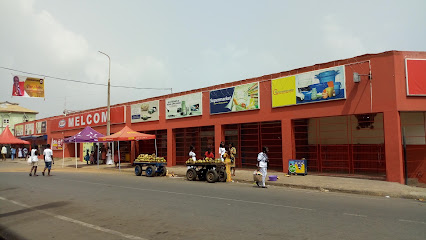
Provisions Shop
Experience the vibrant local culture at Provisions Shop, a unique shopping destination in Cape Coast, filled with fresh produce and handmade crafts.
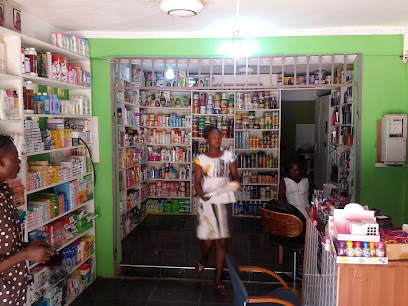
King of the Universe
Explore unique Ghanaian craftsmanship at King of the Universe, your go-to home goods store in Cape Coast for authentic souvenirs and local art.
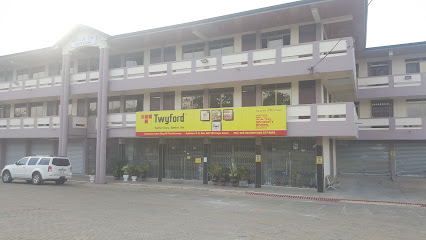
CUPS 'N' CRUNCHES
Discover the sweet flavors of Cape Coast at CUPS 'N' CRUNCHES, your go-to bakery for cakes, pastries, and party supplies.
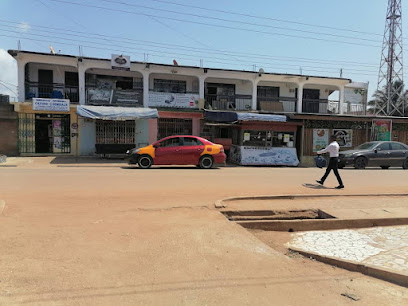
Luckywife Supermarket
Experience the heart of Cape Coast shopping at Luckywife Supermarket, where local culture meets everyday convenience in a vibrant atmosphere.
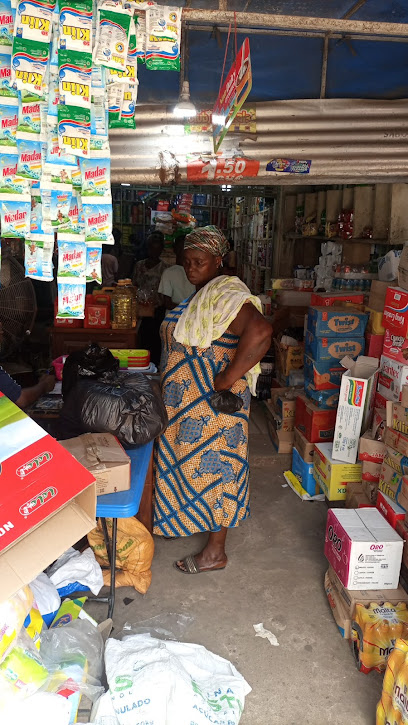
Japanise Ent.
Experience the fusion of Japanese culinary delights in Cape Coast, Ghana. Discover authentic flavors and unique products at the Japanese Supermarket.
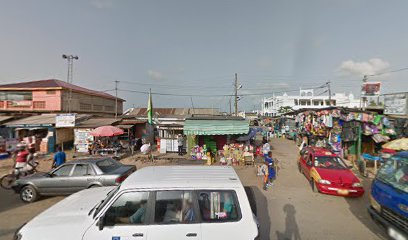
Oceans Fashion Boutique
Explore Cape Coast's Oceans Fashion Boutique for a unique blend of contemporary styles and local craftsmanship in a vibrant shopping atmosphere.
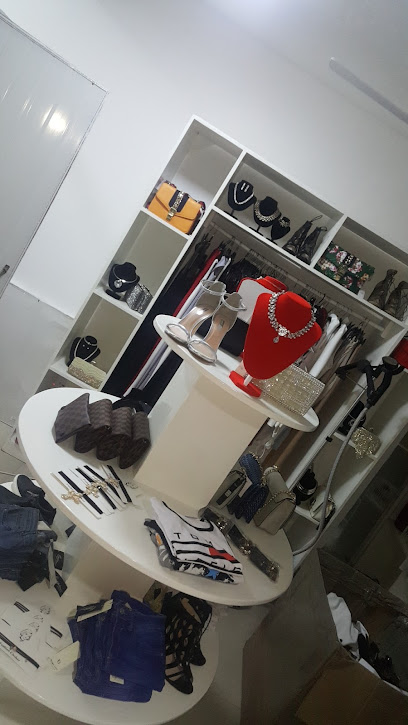
Estaron Cape Coast, Balloons and Gift Shop
Discover unique gifts and local crafts at Estaron Cape Coast, a vibrant gift shop celebrating Ghanaian culture.
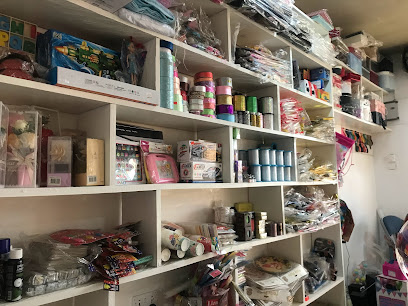
Shoppingwith.Aby
Explore the vibrant Shoppingwith.Aby in Cape Coast for a unique shopping experience featuring local and international brands.

Cathy's MotherCare
Explore the best children's store in Cape Coast, offering a delightful range of products for kids and parents alike.
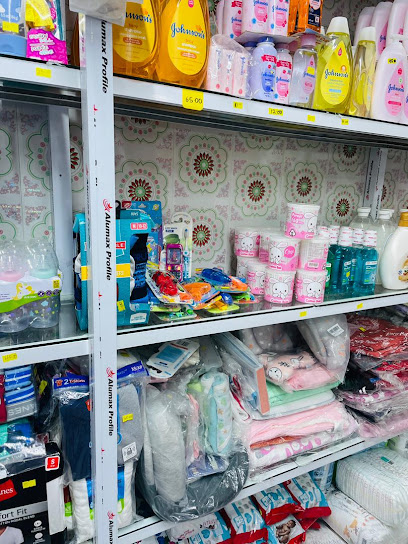
Jamjose Enterprise
Discover unique home goods and local crafts at Jamjose Enterprise in Cape Coast, a must-visit for every tourist exploring Ghana.
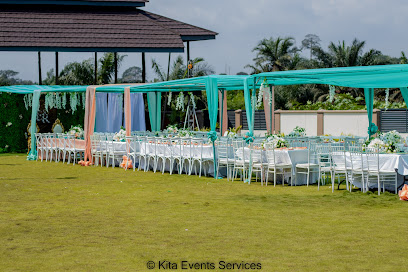
GAG Collection
Explore GAG Collection in Cape Coast for unique Ghanaian fashion that combines local craftsmanship with contemporary style for every traveler.
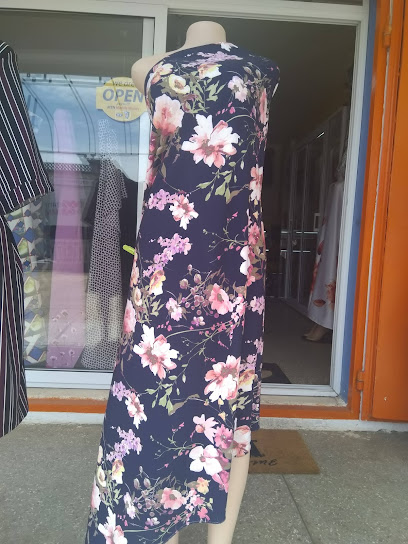
Antoinettes African Boutique
Explore Antoinettes African Boutique in Cape Coast for authentic African clothing and unique accessories that embody Ghanaian culture.
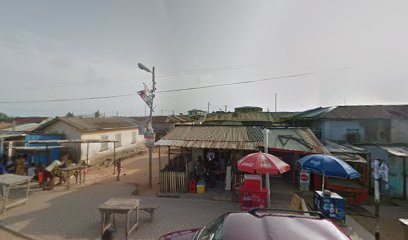
Great Provider Bookshop [Asafo Maame]
Explore Great Provider Bookshop in Cape Coast for a unique selection of literature and community events in a cozy, welcoming atmosphere.
![Great Provider Bookshop [Asafo Maame]](https://evendo-location-media.s3.amazonaws.com/ShoppingImages/0806d84f-c8c5-481c-b44e-be58ef6b4e55)
C&M BAASAKOR LIMITED - Cape Coast
Discover local fashion and unique styles at C&M Baasakor Limited in Cape Coast, Ghana, where vibrant clothing meets cultural heritage.

Essential bars & hidden hideouts
Da Breeze Bar & Restaurant
Discover the coastal culinary delight of Da Breeze Bar & Restaurant, where local flavors meet breathtaking ocean views in Cape Coast.
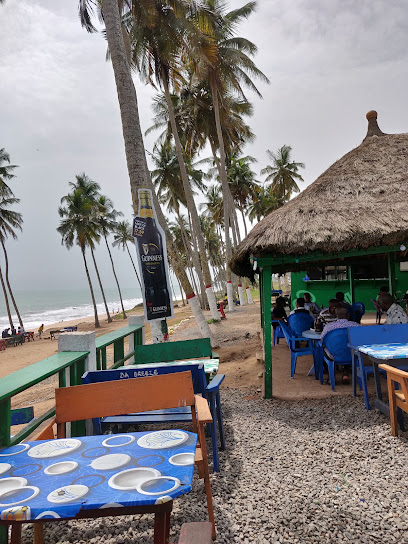
Solace Bar & Restaurant
Experience the flavors of Ghana at Solace Bar & Restaurant in Cape Coast, where delicious meals meet a vibrant atmosphere.
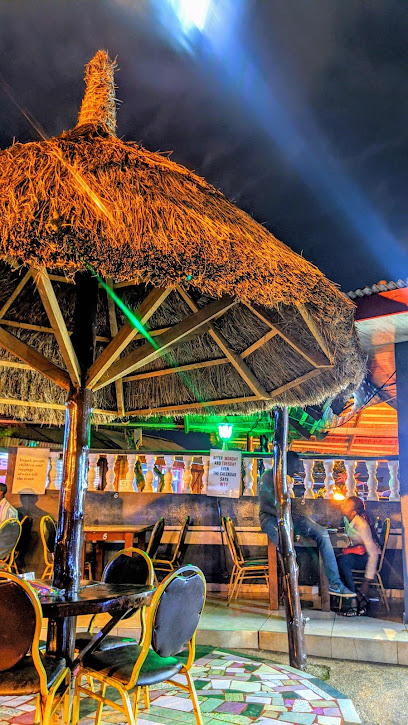
Sahara Spring Restaurant & Pub
Savor the flavors of Ghana at Sahara Spring Restaurant & Pub, a delightful dining experience in the heart of Cape Coast.
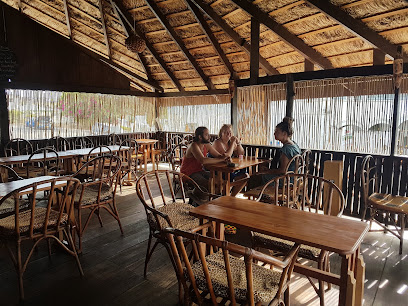
Orange Beach Resort
Experience the perfect blend of relaxation and excitement at Orange Beach Resort in Cape Coast, where comfort meets local flavor.
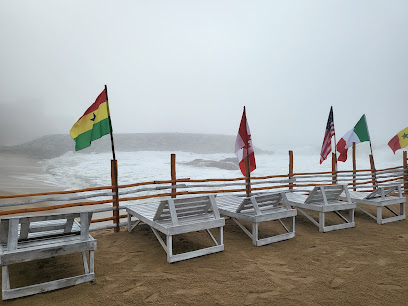
Whispers Tales
Experience the best of Cape Coast at Whispers Tales, a lively pub offering local drinks, delicious food, and vibrant entertainment.
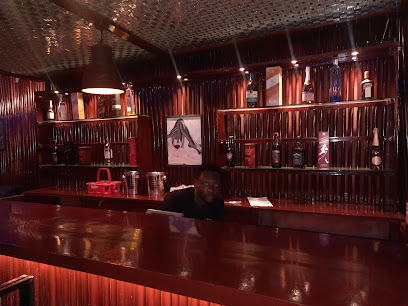
SHIPYARD Bar
Discover the vibrant SHIPYARD Bar, where local flavors and a lively atmosphere await in the heart of Cape Coast.
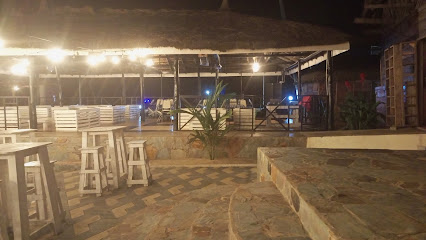
Jalc Pub and Restaurant
Discover the vibrant culinary scene in Cape Coast at Jalc Pub and Restaurant, where great food meets a lively atmosphere.
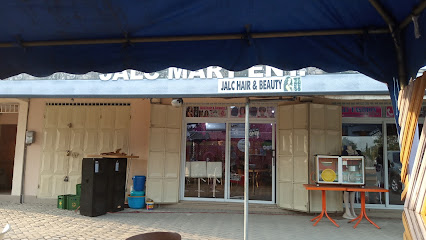
Highway bar and restaurant
Experience the best of local and international flavors at the Highway Bar and Restaurant in Cape Coast, a perfect blend of relaxation and vibrant culture.
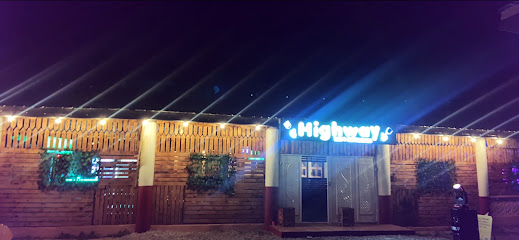
The Bar
Experience the vibrant atmosphere and refreshing drinks at The Bar, a must-visit lounge in the heart of Cape Coast, Ghana.
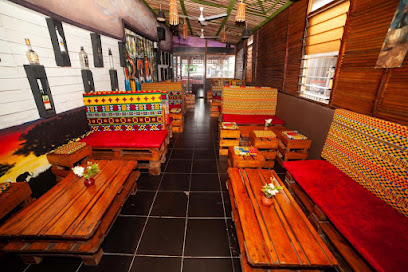
Sun Beach Bar & Restaurant
Experience the best of Cape Coast at Sun Beach Bar & Restaurant, where delicious cuisine meets stunning ocean views.
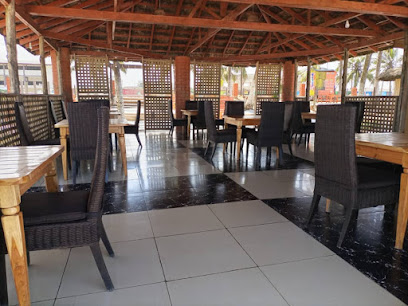
Emmy J
Experience the lively atmosphere and local flavors at Emmy J, Cape Coast’s premier bar for relaxation and socializing.
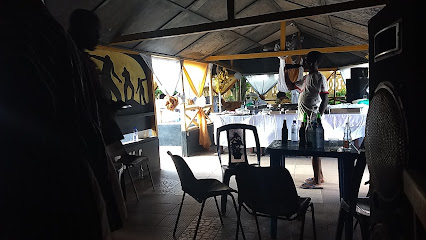
Rasta Bar
Experience the vibrant culture of Cape Coast at Rasta Bar, where refreshing drinks, local flavors, and reggae vibes await you.
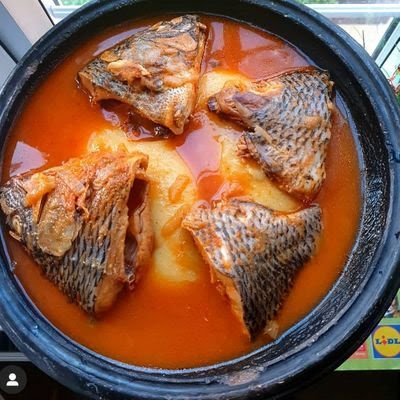
Pub Milla Cape Coast
Discover the lively spirit of Pub Milla in Cape Coast, a perfect blend of local culture, great drinks, and vibrant nightlife.
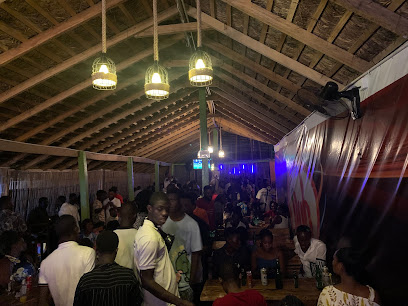
Auntie Mansah
Experience the vibrant nightlife of Cape Coast at Auntie Mansah, where local culture meets a lively bar atmosphere.

Orang BEACH BAR RASTA ARE WELCOME
Discover the vibrant atmosphere of Orang Beach Bar Rasta Welcome, where refreshing drinks and local cuisine meet breathtaking beach views in Cape Coast.
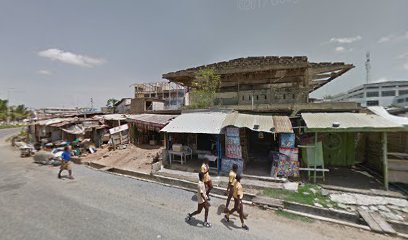
Travel experiences inspired by this city
Explore more travel diariesLocal Phrases
-
- HelloAane
[ah-neh] - GoodbyeAdeewa
[ah-deh-wah] - YesAane
[ah-neh] - NoDaabi
[dah-bee] - Please/You're welcomeMesrɛ
[mess-reh] - Thank youMedaase
[meh-dah-seh] - Excuse me/SorryKɔɔmi
[koh-mi] - How are you?Ɔbaa ara?
[oh-bah ah-rah] - Fine. And you?Adɛn. Na wo ho?
[ah-dehn. nah woh ho] - Do you speak English?Wo ka yɛn Akan?
[woh kah yen ah-kahn] - I don't understandM'anwumm
[mah-noonm]
- HelloAane
-
- I'd like to see the menu, pleaseMaaba menu no, mesrɛ
[mah-ah-bah meh-noo noh, mess-reh] - I don't eat meatMe ne meko dwa
[meh neh meh-koh dwah] - Cheers!Afehyia pa
[ah-feh-hee-ah pah] - I would like to pay, pleaseMaaba sika no, mesrɛ
[mah-ah-bah see-kah noh, mess-reh]
- I'd like to see the menu, pleaseMaaba menu no, mesrɛ
-
- Help!Boa me
[boh-ah meh] - Go away!Kae w'ani
[kah-eh wah-nee] - Call the Police!Kyerɛ nnipa no
[cheh-reh nee-pah noh] - Call a doctor!Kyerɛ akwankyere no
[cheh-reh ah-kwahn-chee-reh noh] - I'm lostMafe wo
[mah-feh woh] - I'm illMafe
[mah-feh]
- Help!Boa me
-
- I'd like to buy...Maaba...
[mah-ah-bah] - I'm just lookingMepɛ sɛ mehia
[meh-peh seh meh-hee-ah] - How much is it?Afei bɛn?
[ah-feh bee-en] - That's too expensiveƐyɛ firi anaa
[eh-yeh fee-ree ah-nah] - Can you lower the price?Wopɛ sika kɔkɔtoo?
[woh-peh see-kah koh-koh-toh]
- I'd like to buy...Maaba...
-
- What time is it?Ɛkyiri bɛn?
[eh-chi-ree bee-en] - It's one o'clockBiribiara bɛn
[bee-ree-bee-ah-rah bee-en] - Half past (10)Akɔti (dɛ)
[ah-koh-tee (deh)] - MorningAnɔpa
[ah-noh-pah] - AfternoonAwia
[ah-wee-ah] - EveningAnwum
[ahn-woom] - YesterdayNsun
[en-soon] - TodayƐnni
[eh-nee] - TomorrowƐbɔ
[eh-boh] - 1Biribiara
[bee-ree-bee-ah-rah] - 2Mmienu
[mee-eh-noo] - 3Mmiɛnsa
[mee-ehn-sah] - 4Ɛnan
[eh-nahn] - 5Enum
[eh-noom] - 6Nsia
[en-see-ah] - 7Nson
[en-sohn] - 8Nanan
[nah-nahn] - 9Sɛn
[sehn] - 10Du
[doo]
- What time is it?Ɛkyiri bɛn?
-
- Where's a/the...?Ɛhe na...?
[eh-heh nah] - What's the address?Ɛhe ama ne din?
[eh-heh ah-mah neh deen] - Can you show me (on the map)?Wopɛ sɛ wobɛboa me (etumi mu)?
[woh-peh seh woh-beh-bo-ah meh (eh-too-mee moo)] - When's the next (bus)?Ɛhia nnipa (trotro)?
[eh-hee-ah nee-pah (troh-troh)] - A ticket (to ....)Kɔtɔkɔ (kɔ ...)
[koh-toh-koh (koh ...)]
- Where's a/the...?Ɛhe na...?
History of Cape Coast
-
Cape Coast, known locally as Oguaa, was originally established as a small fishing village by the people of the Fante ethnic group. The town's strategic location along the Gulf of Guinea made it an ideal spot for trade and interaction with European merchants.
-
In the late 15th century, Portuguese explorers were the first Europeans to arrive in Cape Coast. They established a trading post to facilitate trade in gold, ivory, and later slaves. This marked the beginning of European influence in the region.
-
The Cape Coast Castle, initially a wooden trading lodge built by the Swedes in 1653, was later reconstructed with stone by the British in 1665. It became one of the largest and most important fortresses in West Africa, serving as a hub for the transatlantic slave trade.
-
Cape Coast Castle played a central role in the transatlantic slave trade. Enslaved Africans were held in dungeons before being shipped to the Americas. The castle's dark history is preserved today as a UNESCO World Heritage Site, offering a poignant reminder of this brutal chapter in human history.
-
In the 19th century, Cape Coast became the administrative center for British colonial rule in the Gold Coast (modern-day Ghana). The town was a focal point for the British efforts to consolidate their control over the region, leading to the establishment of schools, churches, and infrastructure.
-
Cape Coast is home to some of Ghana's most prestigious educational institutions, including Mfantsipim School, Adisadel College, and Wesley Girls' High School. These institutions have played a significant role in the intellectual and cultural development of the nation.
-
Ghana gained independence from British rule on March 6, 1957. Cape Coast, like the rest of the country, experienced significant changes during the post-colonial era. The town has continued to grow and develop, maintaining its historical significance while adapting to modern times.
-
Cape Coast is rich in cultural heritage, with festivals such as the Fetu Afahye celebrated annually by the local Fante people. This vibrant festival includes traditional music, dance, and rituals, reflecting the deep cultural roots of the community.
Cape Coast Essentials
-
Cape Coast is located in the Central Region of Ghana. The nearest international airport is Kotoka International Airport in Accra, approximately 150 kilometers away. From Accra, you can take a private car, taxi, or bus to Cape Coast. The journey typically takes around 2 to 3 hours by road. STC and VIP buses are reliable options for those preferring public transportation.
-
Cape Coast is a relatively small city, and many attractions are within walking distance. For longer trips, local taxis and tro-tros (shared minibuses) are readily available and affordable. If you prefer more comfort, ride-hailing services like Uber and Bolt operate in the area. Car rentals are also an option for those who wish to explore the region at their own pace.
-
The official currency in Ghana is the Ghanaian Cedi (GHS). Credit cards are accepted in some hotels, restaurants, and larger shops, but it is advisable to carry cash, especially in smaller establishments and local markets. ATMs are available throughout Cape Coast, but it is wise to withdraw sufficient cash in Accra before traveling.
-
Cape Coast is generally a safe destination for tourists. However, it is advisable to take standard precautions. Avoid walking alone at night in unfamiliar areas and keep an eye on your belongings in crowded places. Areas such as the Cape Coast Castle and the University of Cape Coast are generally safe, but be cautious in less frequented neighborhoods like Amanful, which have higher crime rates targeting tourists.
-
In case of emergency, dial 191 for police assistance, 192 for fire emergencies, and 193 for medical emergencies. The Cape Coast Teaching Hospital is the primary healthcare facility in the area. It is recommended to have travel insurance that covers medical emergencies. Pharmacies are available in the city for minor health issues.
-
Fashion: Do dress modestly, especially when visiting religious sites. Avoid wearing revealing clothing. Religion: Do respect local customs and traditions. Always remove your shoes and cover your head when entering mosques or traditional shrines. Public Transport: Do be respectful and give up your seat to elderly passengers. Don't eat or drink on public transport. Greetings: Do greet people with a handshake and a smile. It is customary to use the right hand for greetings and transactions. Eating & Drinking: Do try local delicacies and accept food offerings graciously. Don't refuse hospitality, as it is considered impolite.
-
To experience Cape Coast like a local, visit the Kotokuraba Market where you can buy fresh produce and traditional Ghanaian goods. Engage with locals, as they are often friendly and willing to share stories about the city's history and culture. Don't miss visiting the Cape Coast Castle and Elmina Castle, both UNESCO World Heritage Sites. For a unique experience, join a local fishing expedition or attend a traditional festival like the Fetu Afahye, held in the first week of September.
Trending Landmark in Cape Coast
Nearby Cities to Cape Coast
-
Things To Do in Sekondi-Takoradi
-
Things To Do in Takoradi
-
Things To Do in Accra
-
Things To Do in Koforidua
-
Things To Do in Kumasi
-
Things To Do in Ho
-
Things To Do in Sunyani
-
Things To Do in Kpalimé
-
Things To Do in Lomé
-
Things To Do in Abidjan
-
Things To Do in Notse
-
Things To Do in Aneho
-
Things To Do in Lokossa
-
Things To Do in Atakpamé
-
Things To Do in Ouidah














